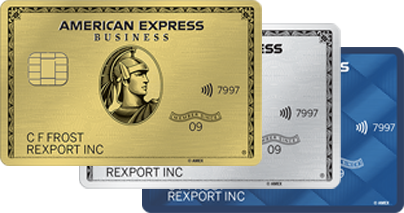
Should You Consider a No Annual Fee Business Credit Card?
By Bill Camarda | American Express® Freelance Contributor
5 Min Read | April 26, 2021
Summary
Whether you run a one-person startup or a sizable established company, business credit cards can provide many advantages: You can quickly make purchases without waiting for more complex financing, smooth out cash flow, strengthen your business credit, improve expense tracking, and earn rewards that can be reinvested into your business. What’s more, some business credit cards have no annual fee – so you can get those benefits without raising your overhead.
Although business credit cards with the most lucrative rewards do tend to charge annual fees, plenty of available options mean you may be able to find a no annual fee business credit card with the benefits you care about most. Here are some things to consider when deciding if a no annual fee credit card is right for your small business.

Who May Benefit from a No Annual Fee Business Credit Card
Your company might benefit from a no-annual fee business credit card if you:
Need an easy, inexpensive solution to help organize and manage company spending.
Some no annual fee business credit cards offer sophisticated expense tracking tools, as well as year-end summaries, account alerts, and other features designed to help you control spending more effectively.
Have several employees spending on the company’s behalf.
Paying a separate annual fee for each authorized employee card can lead to significant upfront expenses. What’s more, some or all of these employees might not need the additional benefits associated with fee-based cards. No annual fee business credit cards can reduce yearly expenses.
Will spend relatively low amounts on your card.
Many fee-based credit cards become more cost-effective as your expenditures grow. Imagine, for example, a card with a $100 annual fee that offers 1% more cash back than its no-annual-fee version. All else equal, you’ll need to spend $10,000 over the course of a year to “cover” that $100 annual fee. If you spend more, the card’s benefits will outweigh its annual fee. If you spend less, you may be better off with a no annual fee business credit card. Of course, this example assumes all else is equal. For example, if a no annual fee business credit card has a higher interest rate than a comparable card with an annual fee, consider whether you’ll be able to fully pay your statement balance before each month’s interest-free grace period ends. If not, the lower-interest card may be a better fit despite its annual fee.
Want to earn rewards and/or use travel benefits.
As the preceding example suggests, some no annual fee business credit cards do offer significant benefits, even if at somewhat lower levels than comparable cards with annual fees. So, for example, if you’re satisfied with earning travel rewards at lower levels, in exchange for saving money upfront, these cards may offer the best balance of features and costs.
No Annual Fee Small Business Credit Card Examples
To get a sense of what’s now available, consider this comparison of two similar no annual fee business credit cards:
Each card empowers businesses to spend flexibly beyond their credit limit when necessary, based on a continuing reassessment of factors such as payment history, credit record, and financial resources. Both also offer a full suite of spend management features, including reporting and budgeting tools, account alerts, receipt capture, online statements, year-end summaries, additional employee cards, mobile apps, and the ability to delegate responsibility to an assistant or business partner. Each allow access to vendor payment services as well.
As business travel ramps up again, both offer a travel assistance hotline that helps cardmembers prepare for trips and handle issues ranging from translation to emergency legal or medical referrals while away from home. Both also provide secondary damage and theft coverage for car rentals throughout most of the world. And, for back home, they both offer extended warranty and purchase protection services on covered purchases.
What’s the difference between the two business credit cards with no annual fee?
One refunds 2% cash back on all eligible purchases up to $50,000 per calendar year and 1% on purchases beyond that. The other rewards you with double points up to $50,000 and standard points for purchases beyond that. That can be especially attractive if you’re interested in earning free travel or other attractive deals offered by the card provider.
Things to know before getting a business credit card without annual fee
Some companies choose to maintain both no annual fee and annual fee business credit cards, splitting their expenditures to maximize benefits. For example, a business might pay for core expenses with a no annual fee card, while using an annual fee card for specific spending categories that earn a higher cash back rate, such as office supplies or travel, depending on the card and card issuer. It’s also possible in some cases to upgrade or downgrade a card based on your changing requirements, though credit card providers may limit your ability to move back and forth.
Note that some cards may come with introductory offers, in which an annual fee or interest payments are waived for the first year. In evaluating these, consider both first-year costs and what you’ll pay subsequently.

You know what your business needs
Give it the spending power it's been looking for.






